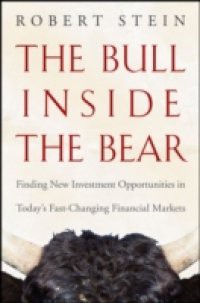The meltdown in the credit markets, the decline in housing prices, and the turmoil in the stock market has rocked the world of the everyday investor. The idea that home ownership and the stock market are the best long-term investments suddenly has been thrown into question. Bearish investment experts are touting historical research that suggests both real estate values and the stock market could stagnate for years to come, thus imperiling the retirement planning of millions of Americans. In The Bull Inside the Bear, investment manager and former Federal Reserve economist Rob Stein argues that the economy is entering uncharted water and investors need to actively manager their portfolios to take advantage of new opportunities and avoid risky sectors. No longer can investors simply rely on a "buy and hold" strategy. The key will be to stay nimble and be ready to increase stock holdings if the economy recovers strongly and be ready to substantially reduce stock holdings if the current problems continue to weigh down economic performance. Moreover, investors must be open to weighting their portfolios in favor of hot sectors depending on economic and financial market performance. Stein argues that it will take several years for the credit markets to stabilize following the crash of the Greenspan-driven credit expansion, which will make investing far more volatile and unpredictable than previously. But by adroitly moving in and out of exchange-traded funds, individual investors will be able to prosper in this new and challenging investment environment.

